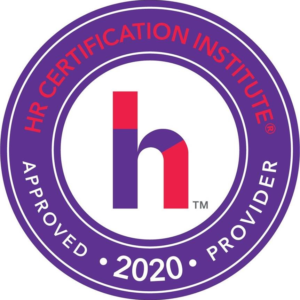Beyond Lessons Learned: Break Through Project Barriers
Rebecca Staton-Reinstein, Ph.D., and President of Advantage Leadership, Inc. work with leaders and their organizations to Increase your bottom-line results through strategic leadership, engaged employees, and delighted customers in all economic sectors. Draw on her proven ability to mentor you through a major change, customizing successful solutions to your complex issues. For over 25 years, Rebecca has contributed value as an executive, manager, educator, and consultant, honored on four continents. She is a Ph.D. in organizational development, a National Speakers Association Legacy Professional Member, and St. Petersburg Engineering Academy Foreign Member and author of books on strategic leadership and planning.

This webinar has been approved for 1.50 HR (General) recertification credit hours toward aPHR™, aPHRi™, PHR®, PHRca®, SPHR®, GPHR®, PHRi™, and SPHRi™recertification through HR Certification Institute® (HRCI®). Please make note of the activity ID number on your recertification application form. For more information about certification or recertification, please visit the HR Certification Institute website at www.hrci.org.
For any further assistance please contact us at support@grceducators.com

Whatever you call those extra assignments or even your larger "regular" work responsibilities, learn to apply project management tools and approaches to get better outcomes when facing barriers to completing work successfully. Identify the business problem you are solving to keep your work focused, efficient, and moving toward the desired solution. Expand your standard responses to barriers to include more analysis and innovation for better results.
As a result of this webinar, you will be able to:
- Identify potential risks more completely and prepare for them
- Move quickly and effectively when faced with unanticipated barriers
- Act in the most productive ways to remove barriers
- Develop new and innovative ways for problem-solving, barrier removal
- Understand the role of your brain in setting you up for successful problem solving
- Integrate Lessons Learned into all future projects and other situations
Learning Objectives
- The context for breaking through project barriers; define a business problem; Avoid crisis orientation
- Anticipating Project Barriers and Risks using SWOT and other tools
- Act based on your plan; scan for early warning signs; allow innovation to flourish
- Work with management to adapt to changed situation; Accept risk analysis and mitigation implementation as standard procedure
- Annihilate the barrier; Monitor and control progress on a new plan; Develop generic risk mitigation plan; Review effectiveness and efficiency of unanticipated risk plan; Continuously improve
Course Level - Intermediate
Who Should Attend
- Anyone who manages projects (with or without the title)
- Anyone who is not an "official" project manager but handles extra assignments
- Anyone who is expected to get results despite barriers and challenges
Why Should You Attend
We've all experienced the unpleasant reality of a project or assignment in trouble. We even say we are "firefighting." Sometimes when the fire has been put out, we even take a few minutes to decide how to avoid this in the future. However, without an established method for dealing with risks, unknown risks, or unexpected risks, we will always be at a disadvantage. Successful project team avoids panic by being ready to act and are flexible enough to modify their project plan to accommodate the new reality. Participants, no matter your title or the type of projects or extra assignments you work on will be able to anticipate, act, adapt, and annihilate barriers to project success.
Topic Background
No matter how many projects you have managed or been a part of, there are always barriers and challenges which pop up you didn't expect or never dealt with before. Heraclitus said, "If you do not expect the unexpected, you will not recognize it when it arrives." The first step every project must take is to consider the potential risks for the effort and analyze each for impact and likelihood. The next decision is to figure out which risks merit a prevention or mitigation plan and to develop these and integrate them into the project plan. The third action is to develop a generic Risk Plan, which will serve as a guide for dealing with unexpected risks or barriers that arise.
-
$200.00
-


